Alphabetizing Worksheets for Ages 4-9
5 filtered results
-
From - To
Introducing our "Alphabetizing Worksheets for Ages 4-9"! Perfect for early learners, these engaging worksheets help children enhance their alphabet and organizational skills. Through fun activities, kids practice placing words and letters in alphabetical order, nurturing both literacy and cognitive development. Expertly designed for young minds, each worksheet offers colorful visuals and clear instructions to make learning enjoyable and effective. Ideal for home or classroom use, our alphabetizing worksheets are tailored to align with educational standards, ensuring your child builds a solid foundation in reading. Fuel your child’s curiosity and boost their alphabetizing proficiency today!
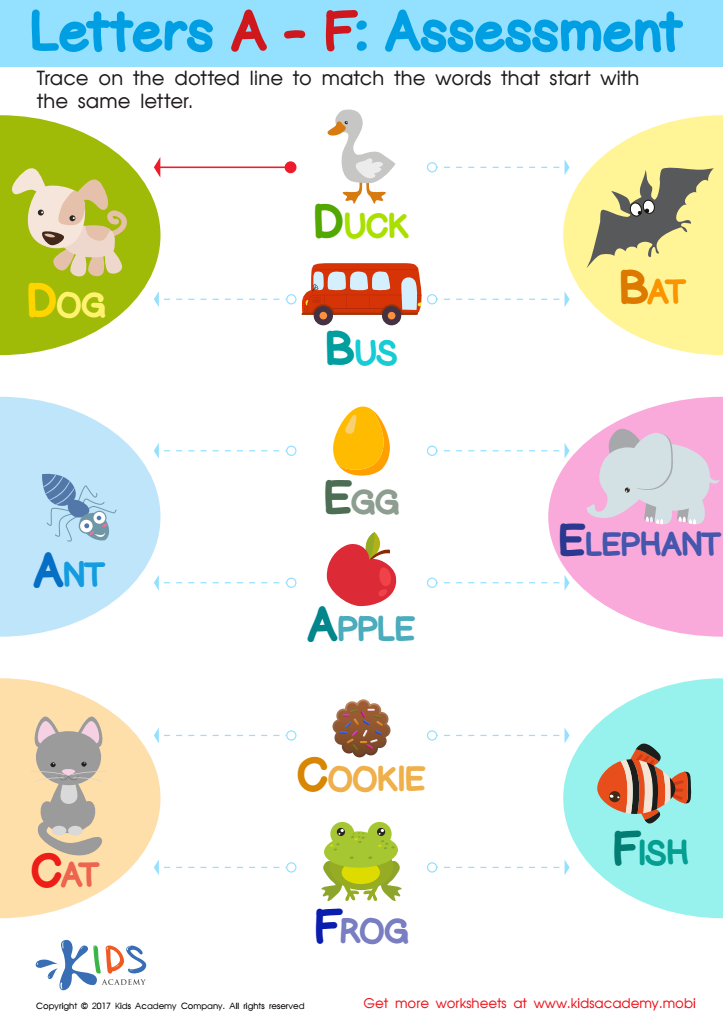

Letters A - F Worksheet
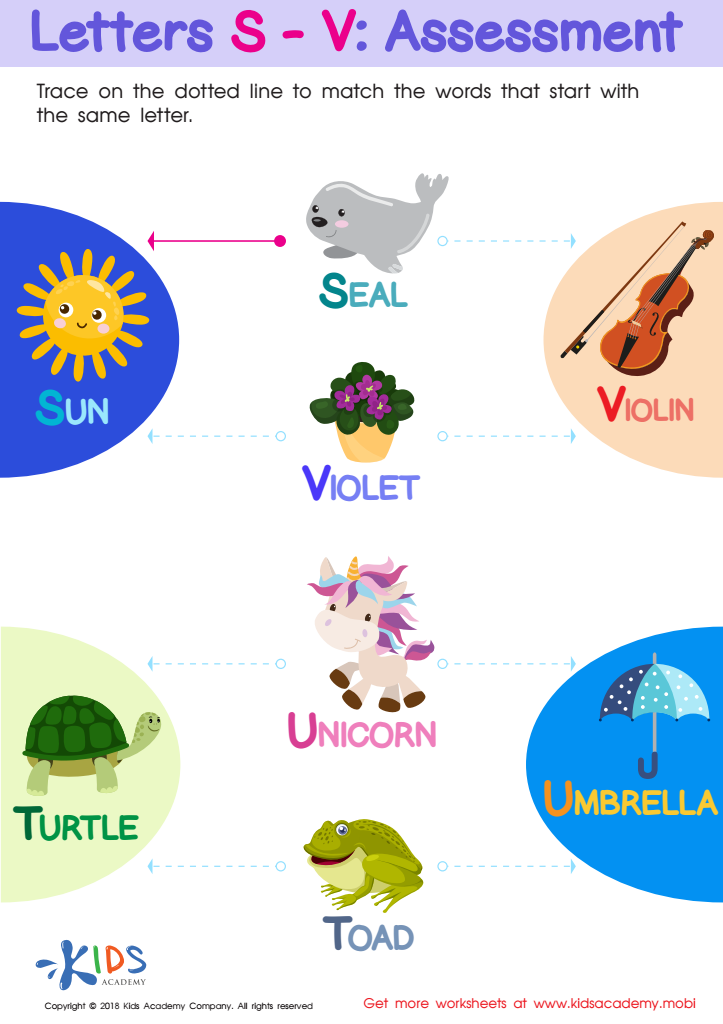

Letters S - V Tracing Worksheet
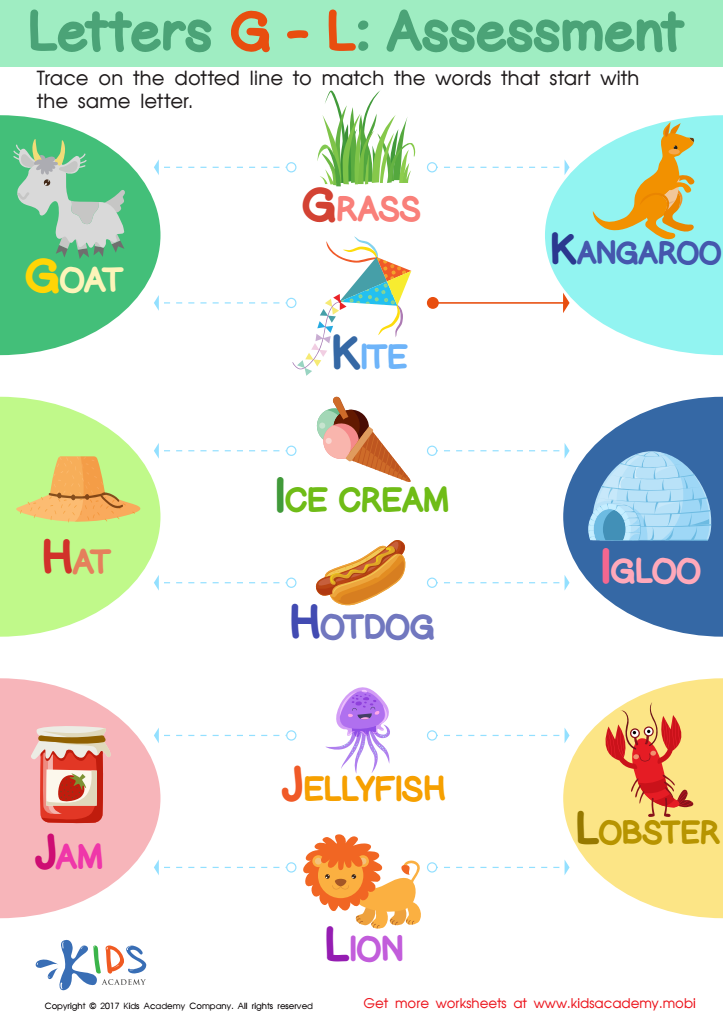

Letters G-L Worksheet
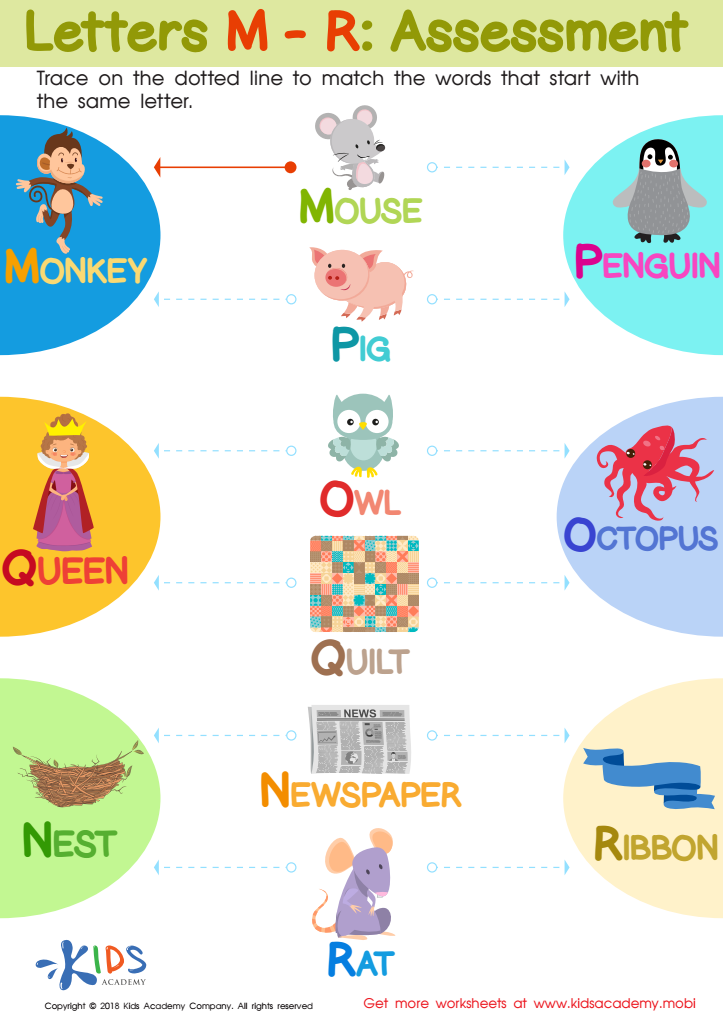

Letters M-R Tracing Worksheet
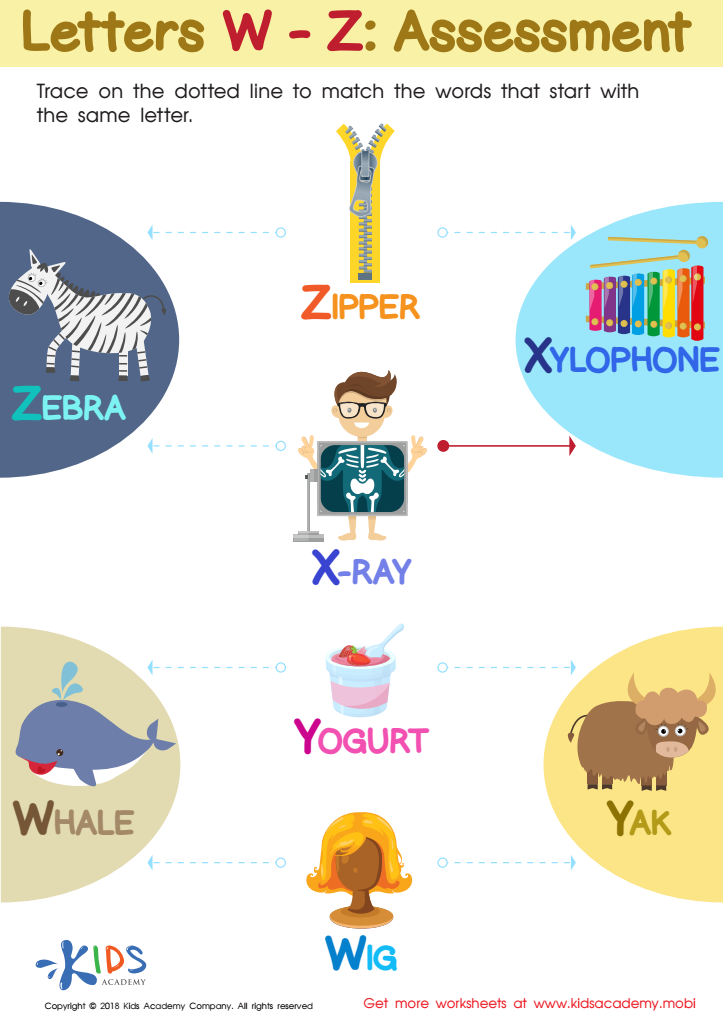

Letters W–Z Tracing Worksheet
Alphabetizing for children ages 4-9 is a fundamental skill that should be emphasized by parents and teachers because it lays the groundwork for many key academic and organizational skills. Firstly, learning to alphabetize helps young minds understand the sequence and structure of the alphabet, which is foundational for reading and writing. Familiarity with alphabetical order enhances their reading skills by enabling them to look up words in dictionaries and other reference materials more efficiently, promoting independent learning and problem-solving.
Furthermore, alphabetizing promotes cognitive development by encouraging children to recognize patterns and sequences. This skill is also a practical necessity; in academic contexts, children often encounter lists like class rosters, library bookshelves, and school portfolios which are organized alphabetically. Mastering this skill ensures they can navigate these efficiently.
Socially, understanding alphabetical order prepares children to tackle organizational tasks. Whether organizing their books on a shelf or sorting items systematically, these small practices foster a sense of responsibility and orderliness.
Moreover, alphabetizing can boost confidence, as children gain satisfaction from the mastery of an essential tool used in various contexts throughout life. Through supporting children in acquiring alphabetizing skills, parents and teachers give them tools not only to succeed academically but also to thrive in their daily activities and future endeavors.
 Assign to My Students
Assign to My Students








